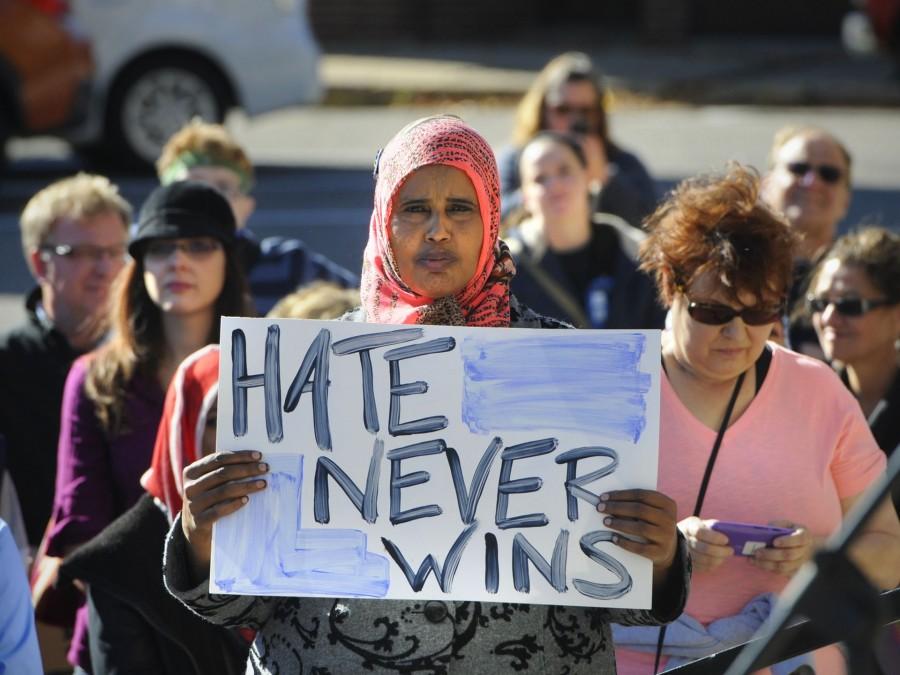Anti-Islamic rhetoric and social media strengthen radicalism
Social media has changed the dynamic of society. Nowadays, people can instantaneously communicate with one another at the click of a button or the tap of a screen. Everything seen on the Internet is influential in one way or another, whether viewers are conscious of this impact or not. Because of this, the power of social media has increased the threat of terrorism and the Islamic State of Iraq and Syria, or ISIS. As a result of technological advancements in communication, ISIS has discovered a new way to spread its radical beliefs globally on a much larger scale than ever before, particularly to young adults who are more vulnerable to recruitment. Additionally, the widespread social media exposure of the anti-Muslim sentiment of individuals like Donald Trump in the United States is only encouraging radicalism, instead of putting a stop to terrorism. The overexposure of figures like Trump in social media could potentially enable ISIS and other radical Islamic groups to utilize Trump’s own rhetoric against the U.S.
Through the power of social media, ISIS is able to recruit members relatively easily. Many young people are being exposed to ideals of radical Islam through the persuasion of videos posted by ISIS on Youtube, Facebook and Twitter. Through a handful of these recruitment videos, Westerners, particularly vulnerable young people, are propagandized into radicalism and persuaded to join the Islamic State in Syria. The terrorist propaganda used in these videos is aimed at impressionable teenagers and young adults who are easily susceptible to influence via the Internet. Their videos appeal to the desire of young teenagers looking for a place in society and provides them with the sense of purpose and belonging. According to CNN, a total of 3,400 Westerners have traveled to the Middle East to join ISIS, including at least 200 Americans who have gone or attempted to travel to Syria.
In addition, the Islamic State is able to utilize social media in order to capitalize upon anti-Muslim sentiment that has grown among conservative American groups, as a result of terrorist action by ISIS. There is speculation that through the power of social media, this anti-Muslim attitude could potentially be used as propaganda against the U.S. in the radical Islamic recruitment process. The overexposure in social media of current GOP candidate Donald Trump has resulted in the availability of videos all over the Internet of Trump exhibiting Islamophobia. On many occasions, Trump has openly stated his desire to ban Muslims from entering the U.S., as well as his desire to combat ISIS. This growing anti-Muslim sentiment will not only aid ISIS in its recruitment process, but could also stir resentment toward American society among some Muslim communities, as America is supposed to be a country based upon freedom, equality and acceptance. Throughout this stressful time, American citizens must continue to remember that terrorism is not a religion, and that falsely associating ISIS with every Muslim on the planet will only worsen the problem.
“I worry greatly that the rhetoric coming from the Republicans, particularly Donald Trump, is sending a message to Muslims here in the United States and literally around the world that there is a clash of civilizations, that there is some kind of Western plot or war against Islam, which then, I believe, fans the flames of radicalization,” said current Democratic primary candidate Hillary Clinton at the Democratic presidential debate on Dec. 19, 2015.
Due to the power of social media in today’s society, the U.S. should be working to welcome and protect Muslims rather than discriminate against their culture. Additionally, in order to reduce and end the influence of ISIS recruitment, action should be taken to help prevent young Westerners from turning to extremism. Groups such as the American Islamic Congress, a nonprofit organization which combats Islamic stereotypes, are very beneficial in regard to helping Muslims feel less like outcasts within a society where certain individuals such as Donald Trump have antagonistic views toward Muslims in America. Additionally, by speaking out against violent terrorist action, groups like the AIC help prove to many Americans that the religion of Islam and ISIS are two very separate entities, and that the vast majority of Muslims do not believe in the radicalism of ISIS.
Overall, through social media and online communication, ISIS is able to recruit new members all over the world through the use of propaganda videos and anti-Muslim rhetoric from overexposed figures in the media such as Donald Trump. In order to combat these techniques and prevent Westerners from turning to radical extremism, Americans should aim to work with Muslims in the fight against ISIS, rather than alienate them from American society.
Your donation will support the student journalists of Calabasas High School. Your contribution will allow us to purchase equipment and cover our annual website hosting costs.







